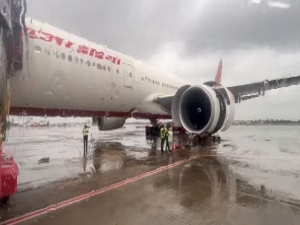New Delhi – India’s aviation regulator has revealed approximately 100 safety-related violations and observations during a comprehensive DGCA Audit conducted between July 1-4. The Directorate General of Civil Aviation inspection of the Tata Group-owned carrier exposed critical operational deficiencies that demand immediate corrective action to ensure passenger safety.
The extensive DGCA Audit was conducted by 10 DGCA inspectors and four additional auditors, representing one of the most thorough regulatory reviews of the airline’s operations. This comprehensive examination occurred independently of the ongoing investigation into June’s tragic Flight 171 crash that claimed 260 lives.
Critical Level 1 Safety Violations Identified

The DGCA Audit resulted in 51 specific findings containing violations and observations, with many classified under ‘Level 1’ safety categories. These critical lapses require immediate corrective measures to maintain safe airline operations and prevent potential catastrophic incidents.
Seven significant breaches identified during the DGCA Audit have been designated as “Level I” non-compliances, demanding immediate correction by July 30. Additionally, 44 other violations must be resolved by August 23, demonstrating the extensive scope of operational deficiencies discovered during the regulatory inspection.
Faulty Simulators Compromise Pilot Training Standards
)
)
One of the most serious findings from the DGCA Audit revealed that the airline used simulators that failed to meet qualification standards for pilot training. This critical deficiency potentially compromises the quality of pilot preparation and raises concerns about flight safety standards across the carrier’s operations.
The DGCA Audit also uncovered “recurrent training gaps” among Boeing 787 and 777 pilots who had not completed mandatory monitoring duties before periodic evaluations. Air India operates 34 Boeing 787s and 23 Boeing 777s, making these training deficiencies particularly concerning for passenger safety.
Flight Duty Time Violations Raise Safety Concerns
A particularly alarming discovery during the DGCA Audit involved an Air India Boeing 787 flight from Milan to New Delhi that exceeded flight duty time limitations by 2 hours and 18 minutes. This “Level I” non-compliance represents a serious breach of aviation safety regulations designed to prevent pilot fatigue-related incidents.
Also Read: First Tsunami Waves Hit Russia: DEVASTATING Visuals Shocks The World
The DGCA Audit findings highlight systematic issues with flight operations management, suggesting inadequate oversight of crew scheduling and duty time compliance across the airline’s international network.
Route Assessment and Airport Category Failures

The comprehensive DGCA Audit revealed that the airline failed to conduct proper route assessments for challenging Category C airports. These specialized airports require enhanced pilot training and operational procedures due to their complex approach and landing characteristics.
This deficiency identified in the DGCA Audit represents a significant safety risk, as Category C airports demand specialized knowledge and preparation that appears to be lacking in Air India’s operational protocols.
Crew Scheduling System Deficiencies Exposed
The DGCA Audit criticized the carrier’s rostering system for lacking “hard alerts” when minimum crew requirements weren’t met. At least four international flights operated with insufficient cabin crew, violating regulatory requirements for passenger safety and emergency response capabilities.
These crew scheduling failures discovered during the DGCA Audit indicate systematic problems with operational oversight and compliance monitoring throughout the airline’s flight operations.
Missing Chief Pilots Create Accountability Gaps


A significant finding from the Air India Audit revealed the absence of chief pilots for the Airbus A320 and A350 fleets. This organizational deficiency creates a lack of accountability and effective monitoring of flight operations for these aircraft types, compromising safety oversight.
The Air India Audit identified this leadership gap as contributing to inconsistent operational standards and inadequate supervision of flight crews across these important aircraft fleets.
Equipment and Documentation Inconsistencies
The detailed Air India Audit uncovered inconsistencies in door and equipment checks, along with significant gaps in training documentation. These deficiencies suggest inadequate quality control procedures and incomplete record-keeping practices throughout the airline’s operations.
Regulatory Response and Corrective Actions
Following the Air India Audit findings, the DGCA issued four show cause notices to the airline based on voluntary disclosures. Senior executives also received separate notices highlighting 29 “systemic” lapses, indicating widespread organizational problems requiring immediate attention.
Air India acknowledged the audit findings, stating it was “fully transparent” during the inspection process and committed to submitting detailed corrective action reports within the stipulated timeframe.
Historical Context of Safety Violations
The current Air India Audit findings occur amid mounting regulatory pressure on the carrier. Last year, aviation authorities issued warnings or fines to airlines in 23 instances, with 11 involving the Air India Group, demonstrating ongoing compliance challenges.
The largest penalty imposed was $127,000 for “insufficient oxygen on board” during international flights, highlighting previous safety violations that required regulatory intervention.
Future Implications for Aviation Safety
Since the Tata Group’s 2022 acquisition of Air India, the carrier has aggressively expanded its international network while continuing to face passenger complaints about aircraft maintenance and cabin conditions. The comprehensive audit findings suggest that rapid expansion may have compromised safety standards and operational oversight, requiring immediate attention to restore regulatory compliance and passenger confidence.

